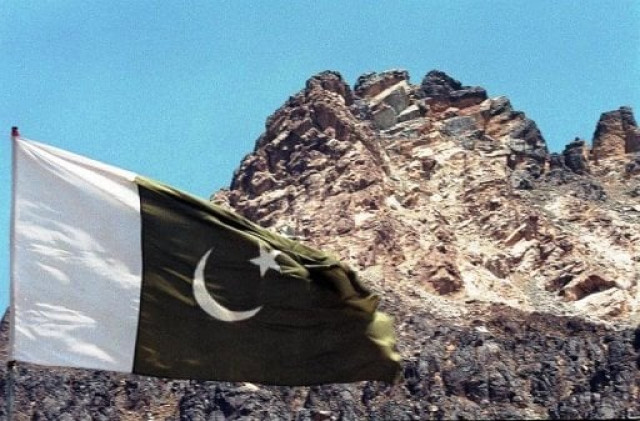WikiLeaks and Pakistan’s nukes
It is not so much possible export of nuclear weapons to other countries as their falling into wrong hands in Pakistan.

WikiLeaks and Pakistan’s nukes
The fear has been expressed subliminally before. The US has officially pronounced that Pakistan’s nuclear weapons are safe, explaining that its security measures are state-of-the-art. However, Pakistan has a different take on American intentions. It unofficially thinks that the Americans are bent upon to somehow “take out” the bombs. Throughout 2009, the media in Pakistan was abuzz with planted stories about how Americans pouring into Pakistan on aid-related visas were actually the advance party of the conspiracy to barge into our nuclear facilities.
There is a background to why Pakistan suspects the US. Washington leads a UN Security Council move on the urging of the International Atomic Energy Agency (IAEA) to investigate the Pakistani ‘father of the bomb’ Dr AQ Khan on his confession that he had handed over some nuclear secrets to other countries. Pakistan has been keeping Dr Khan under layered security to prevent his abduction, although he himself thinks very poorly of this arrangement. The US and its allies have been careful with Pakistan so as not to upset the applecart of their Afghan strategy in which Pakistan plays a critical role.
The “growing concern” expressed in the 2009 meeting reveals a fear not clearly articulated before: that the nuclear weapons might fall into the hands of more aggressive strategists within the army or those linked to al Qaeda through ideology. This fear is once again buttressed by past indications: that a senior Pakistani nuclear scientist with access to low enriched uranium had gone and met Osama bin Laden and presumably offered to make a dirty bomb for al Qaeda. The scientist was questioned in Islamabad and had fainted before being given a lie-detector test. Add to this the fact that Pakistan’s much “weakened” state suffers from a low writ in many parts of its territory where al Qaeda or its supporters are increasingly in control.
What is significant is the reference during the meeting to China as a stabilising agent. Pakistan has had problems with terrorism in its Waziristan area seeping into China’s western province of Xinjiang. A number of Uighur Muslims in training camps in Waziristan posed a threat to China. There are reports that Pakistan, under Musharraf, dealt with them and removed the Chinese complaint in short order. (This did not happen in the case of the Uzbeks despite protests from Uzbekistan’s president.) It is easy to imagine that China would be totally opposed to the rise of al Qaeda and its friends in Pakistan or their coming to power with the aim of controlling Pakistan’s nuclear weapons. There is no one in Pakistan who actually believes that al Qaeda and its supporters will ever come to power in Pakistan. The political order is decisively tilted in favour of the political parties and not the clergy. National politics has settled down as a bipartisan system where the PML-N or the PPP routinely preside over the governance of the country. China is considered a “permanent” friend by politicians and the clergy alike and everybody knows China will not favour a takeover by religious extremists. Pakistan has tacitly accepted this position by attending sessions of the Shanghai Cooperation Organisation (SCO) devoted, among other objectives, to countering the threat of religious extremism.
Yet external impressions about Pakistan are formed by the news that comes out of Pakistan. Some of it is not good at all. For instance, the strength of the clerical reaction to the generally felt need of changing the blasphemy law. Anybody comparing it to the past years’ reaction will say that Pakistan has become more radicalised in favour of the obscurantists.
Published in The Express Tribune, December 2nd, 2010.
Visit https://tribune.com.pk/wikileaks/ for more stories/updates.















COMMENTS
Comments are moderated and generally will be posted if they are on-topic and not abusive.
For more information, please see our Comments FAQ